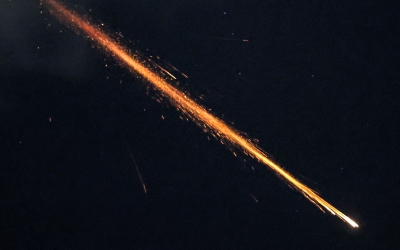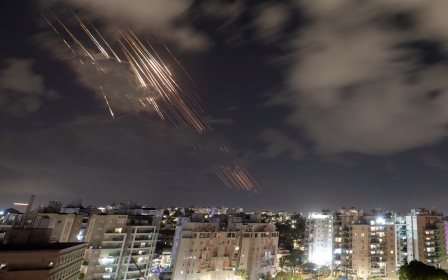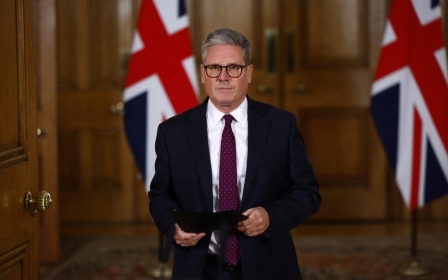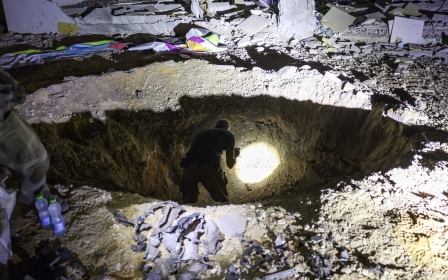Iran's attack on Israel: What we know so far
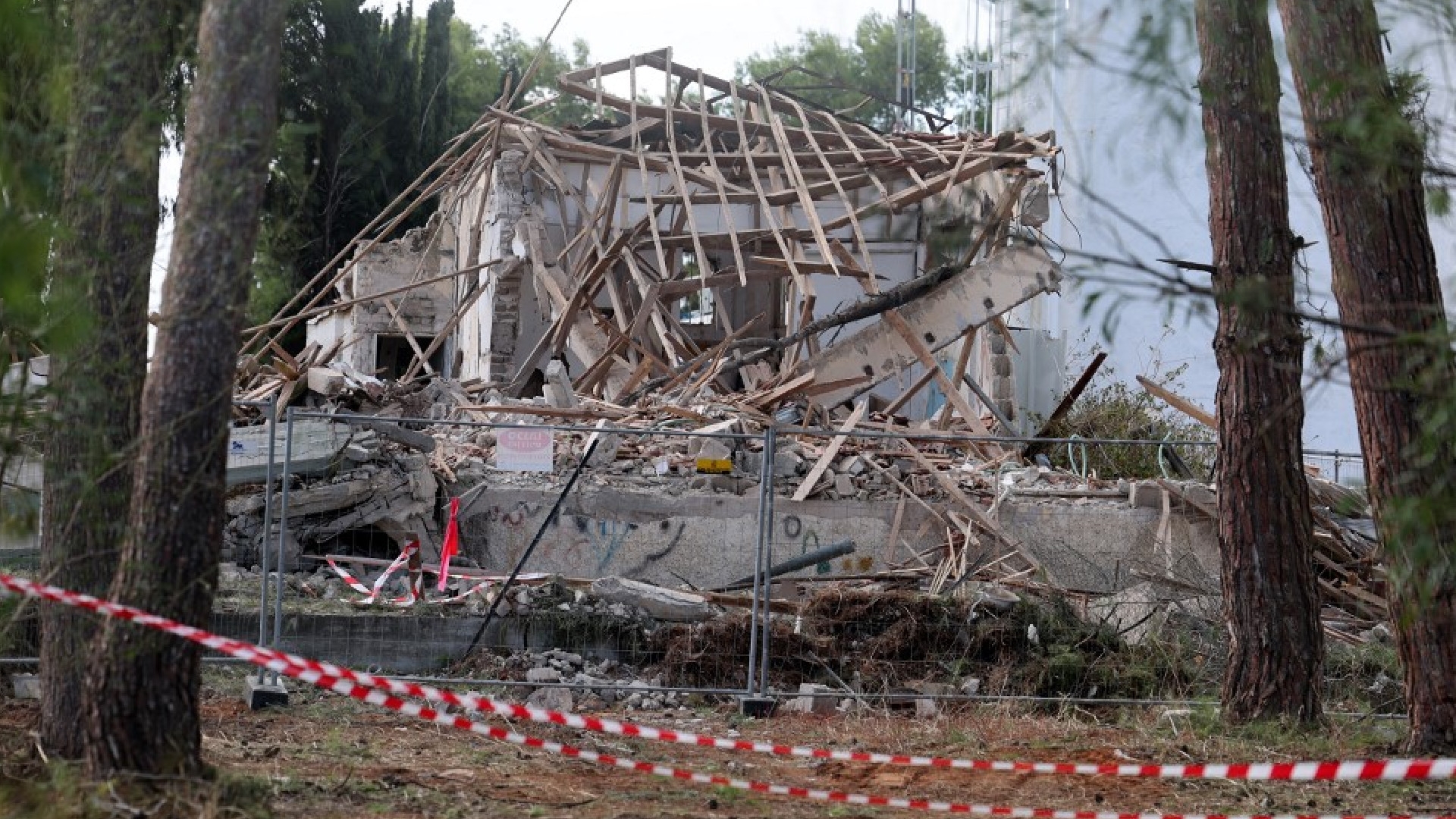
Iran fired a barrage of rockets at targets across Israel on Tuesday evening in its largest-ever attack on the country.
Iran’s Islamic Revolutionary Guard Corps (IRGC) said in a statement that Tehran launched “tens of missiles” towards Israel, targeting “vital military and security targets."
It said that the attack was in response to Israel’s killing of Hezbollah leader Hassan Nasrallah and IRGC commander Abbas Nilforoushan in Beirut, as well as the killing of Hamas leader Ismail Haniyeh in Tehran in July.
Israeli military officials announced the assault was “over” and that there was no more threat from Iran “for now”.
Prime Minister Benjamin Netanyahu has vowed there will be “consequences” for the attack.
New MEE newsletter: Jerusalem Dispatch
Sign up to get the latest insights and analysis on Israel-Palestine, alongside Turkey Unpacked and other MEE newsletters
Here’s what we know so far:
What was the target of the attack?
Iran said the barrage of some 180 projectiles was aimed at the Mossad intelligence headquarters in Tel Aviv, three air bases and military positions near the Gaza Strip fence, claiming the missiles had struck 90 percent of their targets.
The Israeli military said that its forces had intercepted most of the projectiles, working in tandem with the US and the UK, and that only a “few” hits were reported in central and southern parts of the country.
Eyewitnesses reported and footage circulated online showed direct hits on schools and army bases in Tel Aviv, Jerusalem, the Negev and other areas.
Pentagon spokesperson General Pat Ryder said that the attack’s scope was “twice as large” as Tehran’s April assault, when it launched around 300 missiles at Israel.
During Tuesday’s attack, the IRGC claimed to have used hypersonic missiles.
What damage and casualties have the attack caused?
Casualties and damage to infrastructure inflicted by the attack remain unclear, although it appears that the assault caused more damage than the previous one in April.
US National Security Advisor Jake Sullivan described the attack as “significant” but said that no deaths or damage were reported in Israel and concluded that the assault had been “defeated and ineffective.”
Israel’s emergency service reported that two people were wounded from falling shrapnel in Tel Aviv.
AFP also reported, citing city governor Hussein Hamayel, that a man had been killed by falling rocket debris in Jericho in the occupied West Bank.
Reports said that missiles had been intercepted over Jordan, scattering debris over towns and villages.
Footage circulated online revealed damage and casualties purportedly from the fragments of intercepted missiles in areas of Jordan.
One video seemed to show a house on fire in Mufraq, while another appeared to show a man lying dead in the street after missile debris scattered over Abu Alandah in northern Jordan.
Jordanian government spokesperson Mohammad Momani said that fragments of missiles had landed across the kingdom and had inflicted minor wounds.
Jordan has shut its airspace, with the kingdom’s Public Security Directorate saying in a statement that the "Royal Jordanian Air Force and air defence systems responded to a number of missiles and drones that entered Jordanian airspace”.
What happens now?
Netanyahu said the attack was a “big mistake” and vowed that Iran “will pay” for it.
Israeli military spokesperson Daniel Hagari has said that Israel is “fully prepared to defend and retaliate” against the attack “at the place and time we decide.”
White House adviser Jake Sullivan warned that there would be “severe consequences” for the attack, pledging that the US “will work with Israel to make that the case”.
Axios reported on Wednesday that Israel is planning a “significant retaliation” that could target Iran’s oil production and nuclear facilities.
'What we did to Lebanon must also be done to Iran… no political arrangements, no diplomacy – crush, crush, crush'
- National Security Minister Itamar Ben Gvir
Several politicians also openly called for a large-scale assault on Iran. Former Israeli Prime Minister Naftali Bennett said that now is "a historic moment" to attack Iran.
"Israel has now its greatest opportunity in 50 years, to change the face of the Middle East," he wrote on X.
"We must act *now* to destroy Iran's nuclear program, its central energy facilities, and to fatally cripple this terrorist regime."
National Security Minister Itamar Ben Gvir urged Netanyahu to launch a military campaign against Iran, similar to the onslaught on Lebanon.
"What we did to Lebanon must also be done to Iran… no political arrangements, no diplomacy – crush, crush, crush," he said.
Likewise, Knesset member Avigdor Lieberman called for an immediate attack on Iran.
"Bomb all the oil, gas and nuclear facilities, and destroy the refineries and dams," he said.
Meanwhile, the IRGC has warned that any Israeli retaliation would be met with an attack of “multiplied intensity.”
Iran’s armed forces joint chief of staff, General Mohammad Bagheri, said: “If the Zionist regime, that has gone insane, is not contained by America and Europe and intends to continue such crimes, or do anything against our sovereignty or territorial integrity, [Tuesday’s] operation will be repeated with much higher magnitude and we will hit all their infrastructure.”
Middle East Eye delivers independent and unrivalled coverage and analysis of the Middle East, North Africa and beyond. To learn more about republishing this content and the associated fees, please fill out this form. More about MEE can be found here.


